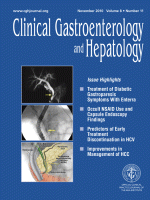Celiac.com 09/08/2008 - Processed foods often contain ingredients derived from starch, such as dextrose (glucose) and maltodextrins. In the United States, these starch products are typically made from corn and are safe for people with celiac disease. However, more than 50% of the processed foods from Europe contain ingredients that are made from wheat starch and therefore contain trace amounts of gluten. This can pose a problem when eating imported foods or when traveling because the amount of gluten required to trigger symptoms in people with celiac disease is still under investigation and not yet completely understood. For this reason, researchers in Finland have tested the safety of eating processed foods containing these wheat starch products.
Researchers recruited 90 adults who had been eating a strict gluten-free diet for at least a year, and randomly assigned them to one of three groups. Depending on the group assignment, participants daily consumed drinks containing wheat-based glucose syrup, wheat-based maltodextrins, or a placebo with no wheat starch. The amount of glucose syrup or maltodextrins given to the participants in the first two groups was comparable to the amount of gluten a person might consume while eating an average amount of processed foods.
Celiac.com Sponsor (A12):
Effects of the wheat starch products were tested in several ways. To determine whether the trace amounts of gluten were sufficient to trigger an immune reaction, researchers examined biopsies of the small intestine for signs of inflammation and damage, and tested the blood for specific antibodies that are elevated after gluten consumption. Small intestine biopsies taken after 24 weeks of wheat starch product consumption did not show increased damage or inflammation compared to biopsies taken before the study began, or compared to biopsies of subjects consuming the placebo. Similarly, levels of antibodies were not increased by daily consumption of this very small quantity of gluten.
Because eating gluten reduces nutrient absorption in people with celiac disease, blood levels of iron, folic acid, and calcium were tested in all three groups before and after the 24 week study. Concentrations of these nutrients did not decrease in any of the groups during the study, indicating that nutrient absorption was not affected by this amount of wheat starch consumption. Additionally, gastrointestinal symptoms, such as diarrhea, indigestion, constipation, abdominal pain, and gastro-esophageal reflux, did not increase significantly in any group and none of the patients who suffered from dermatitis herpetiformis developed a rash during the study.
Results of this study suggest that the trace amounts of gluten in processed foods containing wheat starch products were not harmful for most people with celiac disease. Although additional studies will help clarify the issue, it may be unnecessary for people to avoid these products, making it easier to adhere to a “gluten-free” diet.
Kaukinen K, Salmi T, Huhtala H, et al. Clinical trial: gluten microchallenge with wheat-based starch hydrolysates in celiac disease patients: a randomized, double-blind, placebo-controlled study study to evaluate safety. Alimentary Pharmacolgy
Aliment Pharmacol Ther. 2008 Aug 17.
Departments of Gastroenterology and Alimentary Tract Surgery, University of Tampere and Tampere University Hospital, Tampere, Finland.








Recommended Comments